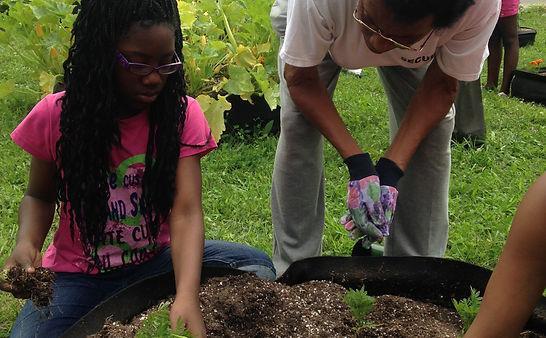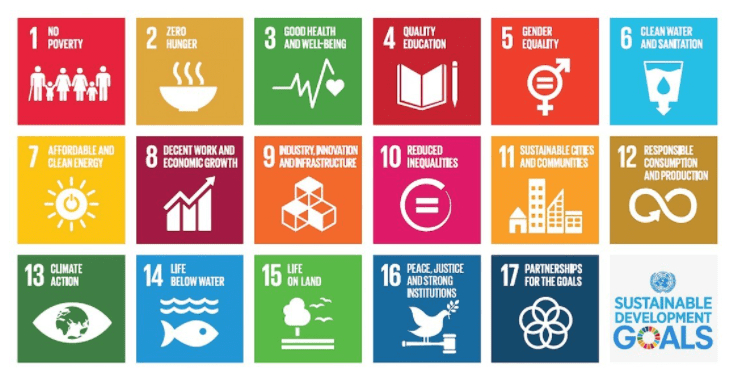Our mission is to provide access to affordable, sustainable, and high-quality housing for all, in line with the Sustainable Development Goals presented by the United Nations. We will work with U.S. Based local state-governments, civil societies and the private sector to build and manage housing that meets the needs of low-income and marginalized communities, while also promoting economic growth, gender equality and environmental sustainability.
According to a report by the Atlanta Regional Commission, more than half of renters in the Atlanta region are paying more than 30% of their income on housing . This is considered a burden by the U.S. Department of Housing and Urban Development , as it leaves little room in the budget for other necessities such as food, transportation, and healthcare.
The report also found that the supply of affordable housing in the Atlanta region is not keeping up with demand. There is currently a shortage of more than 190,000 units of affordable housing for extremely low-income households in the region.
The cost of housing in Atlanta has been increasing faster than wages, making it harder for low-income households to afford housing. According to the National Low Income Housing Coalition, a person earning the median hourly wage in Atlanta would need to work more than 60 hours per week to afford a two-bedroom apartment at the fair market rent.
The high demand for housing, combined with limited supply and rising construction costs, has contributed to the unaffordable housing problemin Atlanta . The city has experienced rapid population growth in recent years, which has put additional pressure on the housing market.
The affordable housing problem in Atlanta is not limited to rental housing ; many homeowners in the region are also struggling to afford their housing costs. The high cost of housing in the city can make it difficult for low-income households to save for a down payment and afford the monthly mortgage payments.
The affordable housing problem disproportionately affects low-income households, communities of color, and households with children . These groups are more likely to struggle to afford housing and are at a higher risk of experiencing homelessness or housing instability
Increase the supply of affordable housing : One way SDG·America plans to address the shortage of affordable housing in Atlanta is to increase the supply of such housing. This could include providing funding to support the construction or rehabilitation of affordable housing units, or partnering with developers to build or preserve affordable housing.
Provide rental assistance : Another SDG·America strategy to address the unaffordable housing problem in Atlanta is to provide rental assistance to low-income households. This could include funding programs that provide financial assistance to help households afford their rent, or partnering with organizations that provide rental assistance services.
Support homeownership for low-income households : SDG·America strategy will also support initiatives that help low-income households achieve homeownership, such as down payment assistance programs or mortgage assistance programs.
Promote alternative housing options : In addition to traditional housing options, a SDG·America supports initiatives that promote alternative housing options, such as co-housing, shared housing, or tiny homes. These options can be more affordable and offer a sense of community.
Advocate for policy change : SDG·America will continue to advocate for policy changes at the local or state level that would address the affordable housing crisis in Atlanta. This could include supporting legislation that increases funding for affordable housing, or lobbying for policies that make it easier to build or preserve affordable housing.
Collaborate with community partners : To have the greatest impact, SDG·America collaborates with community organizations, local government, and other stakeholders to develop and implement solutions to the affordable housing crisis in Atlanta. This can help ensure that the solutions are tailored to the specific needs of the community and are sustainable in the long term.
Poverty and homelessness are significant issues in the United States. According to data from the U.S. Census Bureau, in 2020, approximately 10.5% of the population, or around 34 million people, lived in poverty . This means that they had an income below the poverty line, which is defined as an annual income of $12,760 for an individual or $26,200 for a family of four.
Homelessness is also a serious problem in the United States. According to data from the Department of Housing and Urban Development (HUD), in 2020, there were an estimated 567,715 homeless individuals in the United States on a given night . This includes people who are living in shelters, on the streets, or in other places not meant for human habitation.
There are many factors that contribute to poverty and homelessness in the United States. These include:
Efforts to address poverty and homelessness in the United States include providing affordable housing, increasing access to education and job training, expanding healthcare access, and offering support services such as mental health treatment and addiction recovery programs.
Homelessness is a major issue in Atlanta, Georgia and throughout America, as well as, the world. According to a recent study there are more than 4000 individuals experiencing homelessness on any given night in Atlanta . This problem is not only detrimental to the individuals experiencing homelessness, but it also has a negative impact on the city as a whole. SDG-America is working to address homelessness in Atlanta is an SDG (Sustainable Development Goals) Foundation.
SDG-America is a non-profit organization that is dedicated to promoting the implementation of the United Nations Sustainable Development Goals (SDG) in cities around the world. One way that SDG-America is helping to address homelessness in Atlanta is by working with local government officials and community organizations to provide housing and support services to individuals and families experiencing homelessness. This includes providing temporary housing and support services, such as counseling and job training, to help individuals get back on their feet and transition into permanent housing. In addition to providing housing and support services, SDG-America is also working to raise awareness about homelessness in Atlanta.
Through community outreach and education programs, the organization is helping to educate the public about the causes and effects of homelessness, and how they can help to support efforts to end homelessness in the city.
By working with local partners and providing support services to individuals and families experiencing homelessness, SDG-America is helping to make a measurable impact on the lives of those who are most in need. mage. Through these efforts, SDG-America is working to create a more sustainable and equitable city for all.
Housing displacement refers to the process of forcing or pressuring individuals or communities to leave their homes, often due to economic or political pressures. Housing displacement can occur for a variety of reasons, including gentrification, redevelopment, and urban renewal. It can have serious consequences for the individuals and communities affected, including loss of social networks and support systems, disruption of children’s education, and increased risk of homelessness.
Housing displacement can take many forms, including the demolition or conversion of rental properties to more expensive units, the adoption of policies that make it difficult for low-income residents to afford housing, and the use of eminent domain to seize private property for public or private development. It can also be driven by factors such as rising property values, changes in the local economy, or the development of new infrastructure.
In order for SDG·America to address housing displacement, it is important that we work to implement policies and programs that protect the rights and interests of vulnerable communities, such as rent control measures, inclusionary zoning policies, and tenant protections. It is also important to engage in community-driven planning processes that involve affected communities in decision-making about development and land use.
Homelessness can affect military service members for a variety of reasons. Some service members may struggle with homelessness upon returning from deployment due to difficulty adjusting to civilian life or finding employment. Others may face financial challenges that make it difficult to afford housing. In addition, service members may be at increased risk of homelessness due to physical or mental health issues that result from their military service.
The Department of Veterans Affairs (VA) states understands that homelessness among military service members and veterans is a complex issue with multiple contributing factors. Some research has found that military service members and veterans who have experienced trauma or have physical or mental health conditions are more likely to be homeless. Other research has identified factors such as financial instability, substance abuse, and social isolation as contributing to homelessness among military service members and veterans.
According to the Department of Veterans Affairs (VA) , the prevalence of homelessness among military service members and veterans has decreased in recent years. However, it is still a significant issue. Here are a few statistics on homelessness among military service members and veterans:
The Department of Veterans Affairs (VA) has programs in place to help prevent and address homelessness among military service members and veterans. These programs provide access to temporary and permanent housing, as well as mental health and other supportive services. If you are a military service member or veteran who is experiencing homelessness or at risk of homelessness, you can contact the VA for assistance. Some of these programs include:
The VA has conducted extensive research on homelessness among military service members and veterans and has developed programs and services to address this issue. For example, the VA’s Health Care for Homeless Veterans (HCHV) program provides comprehensive health care and supportive services to homeless veterans. This includes primary care, mental health care, substance abuse treatment, and other supportive services.
In addition to the programs offered by the Department of Veterans Affairs (VA), there are other programs offered by the U.S. government that aim to address homelessness among military service members and veterans. U.S. Department of Housing and Urban Development (HUD) : HUD provides a range of housing assistance programs for low-income individuals, including veterans. These programs include:
SDG·America is working with the Department of Veterans Affairs (VA), as well as, the government and local communities, via a detailed roadmap, on a number of strategies to support programs that provide services to homeless and at-risk veterans. Some potential strategies that SDG·America and the VA include:
If you are a military service member or veteran who is experiencing homelessness or at risk of homelessness, you can contact the VA for assistance. You can find more information about these and other programs on the VA’s website or by calling the VA’s National Call Center for Homeless Veterans at 1-877-4AID-VET (1-877-424-3838).
Inequality refers to the unequal distribution of resources, opportunities, and privileges within a society. In the United States, there is a significant degree of inequality, and this inequality often intersects with issues of poverty and homelessness.
Certain groups of people may be more likely to experience poverty and homelessness due to systemic inequalities and discrimination. These groups may include racial and ethnic minorities, immigrants, LGBTQ+ individuals, and people with disabilities.
There are many factors that contribute to inequality in the United States, including:
Efforts to address inequality may involve implementing policies and programs that provide equal access to resources and opportunities for all members of society, as well as addressing systemic discrimination and prejudice.
SDG·America has identified issues associated with gender inequality which include:
These issues can have serious consequences for individuals, communities, and societies as a whole, and addressing gender inequality requires addressing these and other related issues.
Hiring local residents to work on the construction and development of affordable housing projects. This can provide employment opportunities for members of the community and help to stimulate the local economy.
Partnering with local organizations and training programs to provide job training and apprenticeship opportunities for residents interested in careers in the building and construction industry.
Overall, addressing inequalities requires a multifaceted approach that considers the complex and interconnected factors that contribute to inequality, and that engages and empowers individuals and communities to drive change and progress.
There are many different ways that a community can recycle water in an affordable home community. Some potential options could include:
Each of these options can be implemented at different scales and with varying levels of investment, so the specific approach that a community chooses to take will depend on factors such as available resources, local regulations, and community preferences.
A habitat model in the context of biodiversity conservation refers to a tool or methodology used to simulate and analyze the potential effects of different conservation strategies on the distribution and health of species in a given area. This could involve modeling factors such as land use, habitat quality, species interactions, and other variables to predict how changes in these factors might impact the biodiversity of the area over time. Habitat models can be used to evaluate the potential effectiveness of conservation efforts and to identify potential areas for conservation action.
Habitats with a minimum footprint on the planet and a maximum positive impact on the local community.
Organic gardening is a method of gardening that emphasizes the use of natural and sustainable techniques to grow fruits, vegetables, and other plants. This often involves using compost and other natural fertilizers, avoiding the use of synthetic chemicals and pesticides, and using practices like crop rotation and companion planting to support healthy soil and plant growth.
Organic gardeners may also focus on using heirloom and non-GMO seeds, and may strive to create a diverse and balanced ecosystem in their gardens.
Learn how to use organic gardening methods to grow the freshest food in your fruit and vegetable garden.
The city of Atlanta, Georgia has 27 designated Opportunity Zones.
In total these Opportunity Zones have a population of approximately 92,000. That represents 18% of the city’s total population of 510,000.
The median household income for Atlanta Opportunity Zones range from approximately $13,000 to $63,000.
The adjacent map shows all Opportunity Zones in Atlanta. Click on any Opportunity Zone for additional information.







